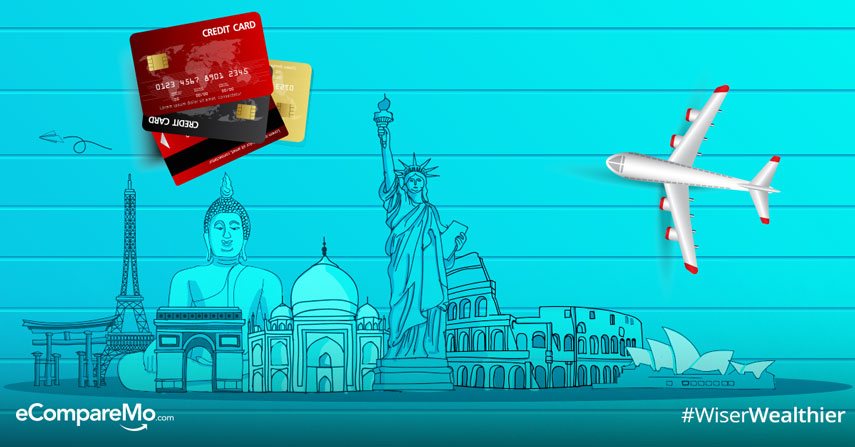4 Things Every Traveler Should Know About Using Their Credit Card Abroad
4 min readIt’s finally happening. After months of saving and careful planning, you’re about to embark on your dream vacation. You’re going off to see exotic sights, try new food, and learn about new cultures that you had previously only read about in books or seen on TV.
One of the most important things you need to prepare just before you go is your budget. While it is always wise to bring cash for the little purchases (for example: small souvenirs, train rides, street food, etc.), it is also very prudent to travel with your credit card as a safety option. For one, you are covered with the benefit of theft protection.

If you are planning to use your credit card for the first time abroad, Â here are four things you need to consider.
1. Know where you can use your credit card
While most major credit cards are accepted all around the world, it might not be so easy to just swipe your purchases.
For example, in Tokyo, most hotels, along with big stores and restaurants, and even taxis will accept credit cards but smaller souvenir shops might not. Also, some temples, shrines and other attractions might require you to pay your entrance fee in cash.
If your destination is a bit off the beaten path, outside the major cities to a secluded beach or on a hiking trip, you also can’t be sure of finding places that will accept credit cards.
It’s best to just keep your credit card for emergencies or for making large purchases such as hotel bookings or flight and train tickets.
2. Know what your foreign transaction fee is.
The good news is that some credit card companies offer a more favorable exchange rate than what you would get through a currency exchange office.
The bad news? Most credit card companies charge an additional fee for transactions made while you’re abroad. This fee can be around two to three percent of the purchase price.
So before you decide to use your card, make sure you have a good idea of just how much you will be paying when you get back home.
3. Your credit card company should know you are leaving the country.
Days before you board the plane, you should contact your credit card provider and let them know when you’re leaving and where you will be going.
Most credit card companies are vigilant in guarding their customers against “suspicious activities.†One very suspicious activity would be your card being used to purchase something in a foreign country.
If you don’t let your credit company know that you are abroad, they might think that your credit card information has been stolen and is being used by a foreign hacker. They might then suspend your account.
Don’t forget to inform them of any stopovers you might be making before you get to your final destination. This way, if your connecting flight is delayed or canceled and you need to book a hotel room or purchase a new ticket with your card—it won’t be considered a suspicious activity and you will still enjoy the full benefits of your card.
Also, ask your credit card provider about assistance hotlines that you can call in case of trouble with your card. Note these numbers and store them in a separate location, so if your wallet and your card get stolen, you can contact them as soon as possible.
Not only will this prevent thieves from using your card, some companies can even arrange for a replacement card to be delivered to your location.
4. Many credit cards have travel perks
The freedom and financial capacity to travel is something that many people treasure, and credit card companies realize that. That’s why many major credit card companies offer at least one type of credit card with travel perks.
Some offer cardholders a lower exchange rate and even a lower finance charge. Some will get you access to a VIP airport lounge. Some credit cards also tie up with major airlines to allow you to earn points that can be exchanged for miles.
Even if you don’t have a  credit card with travel perks, you should still check with your provider if there isn’t some sort of travel benefit you’re missing. Insurance against canceled flights, if booked with the credit card, is actually a pretty common perk not many people know about.
So should you take your credit card with you when traveling? You decide. Though it’s always good to have a backup plan in case of an emergency.
Keep it safe and separate from your cash, so if you lose your wallet or get pickpocketed, you can turn to your credit card. You can also use it for unexpected big-ticket expenses like a new hotel room or a local flight.
What’s even smarter to have in case of a travel emergency is travel insurance.
Charter Ping An offers SmartTraveller, a travel insurance policy that can help you out in almost any emergency, wherever you travel.
With SmartTraveller, you can be sure of being protected in cases of travel inconveniences and loss of personal belongings, while getting personal accident coverage, liability and personal safety coverage, and 24-hour medical assistance.
Travel smart and explore the world with complete peace of mind! Get a free quote today.
